Daily Business Report: July 8, 2024
Visual Capitalist
Amazon’s Most Notable Acquisitions to Date
The Briefing:
- Amazon plans to acquire Metro-Goldwyn-Mayer (MGM) for $8.45 billion
- This move would add 4,000 films and 17,000 TV shows to Amazon Studios’ content library
Big Tech just keeps getting bigger.
On May 26, 2021, Amazon announced its plan to acquire Metro-Goldwyn-Mayer (MGM) studios for $8.45 billion, making it the company’s second largest acquisition to date.
Amazon has acquired multiple companies across a variety of sectors from healthcare to entertainment, helping diversify its core revenue. In total, the tech giant has acquired or invested in over 128 different companies over the last 20 years.
In 2017, Amazon paid $13.7 billion to purchase Whole Foods Market—this remains the company’s largest acquisition to date.
The Whole Foods acquisition provided brick-and-mortar space for Amazon to sell some of its flagship devices, like the Echo Dot. It also allowed Amazon to gather valuable shopping data on its customers, to better understand their offline shopping preferences.
Here’s how Amazon’s top 10 acquisitions by value stack up in comparison:
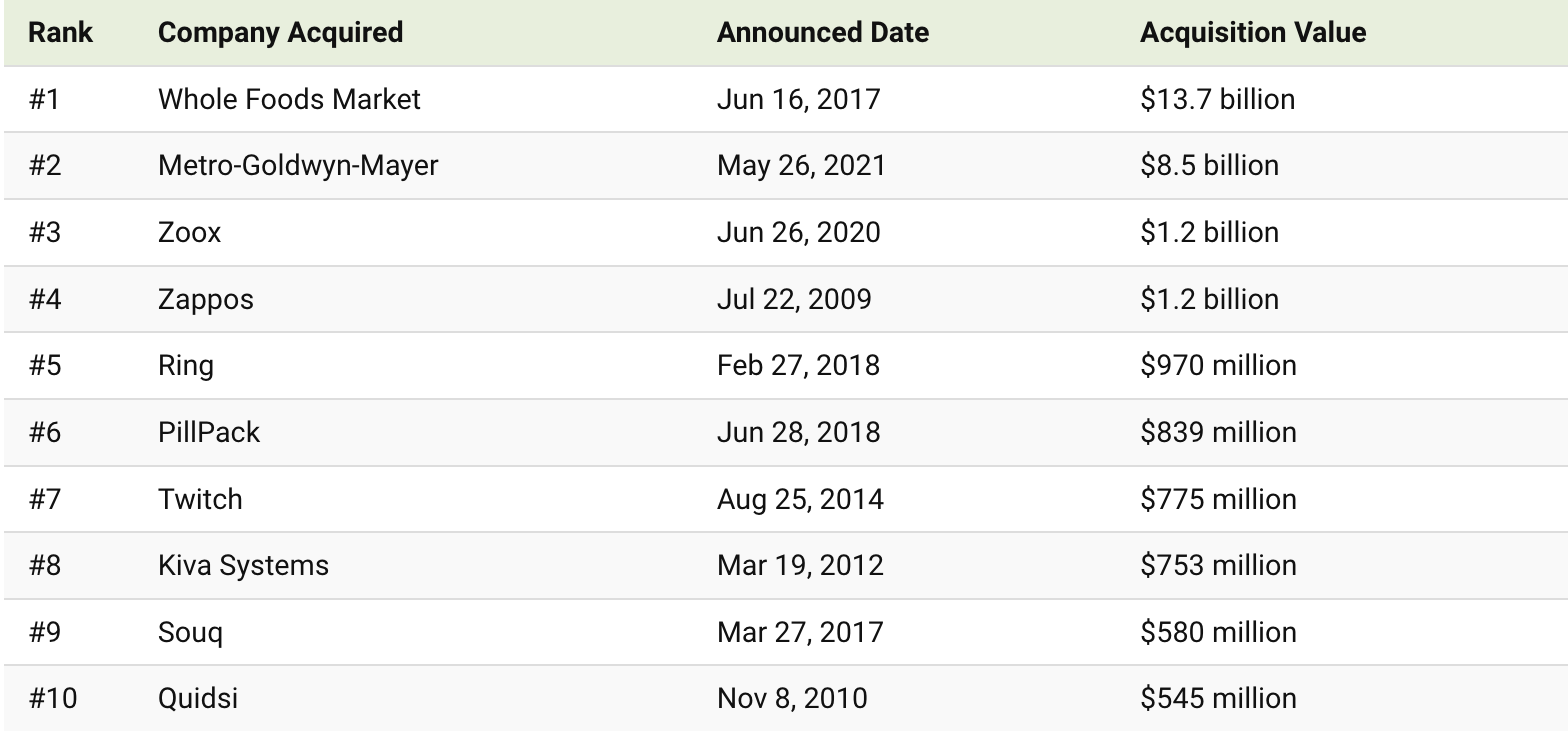
Prior to the announcement, the purchase of robotaxi company Zoox was Amazon’s second largest acquisition. According to their reported agreement, Amazon has the rights to use Zoox’s transport technology for ride-hailing or logistics (delivery) services.
The acquisition of MGM will add 21,000 films and TV shows to Amazon’s content library, helping Amazon keep up with the fierce competition in the content streaming industry. MGM owns the rights to “The Handmaid’s Tale” series and “Shark Tank,” as well as the James Bond and Rocky franchises.
_______________________________________________
He used to run a nightclub. Now he’s pushing
for a new law to fight drink spiking

By Ryan Sabalow | CalMatters
Across California, hundreds of bar owners have been hanging signs that read, “Don’t get roofied! Drink spiking drug test kits available here.”
If they don’t post the signs — or if they don’t have kits available for patrons to test their drinks to determine if they’ve been drugged — the proprietors run the risk of state fines or having their liquor licenses suspended.
The new requirements for the state’s 2,400 bars and nightclubs take effect today, thanks to a law that Gov. Gavin Newsom signed last year. Its lead author is Long Beach Democratic Assemblymember Josh Lowenthal, a former nightclub owner who is currently a partner in three Southern California restaurants that serve alcohol.
And it’s not Lowenthal’s only anti-drink spiking legislation. He has three other anti-drink spiking bills pending in the Legislature that would add new requirements for alcohol servers. One would require bars to provide cups with lids on them at a customer’s request. Another would require the state’s Department of Alcoholic Beverage Control to include mandatory training for alcohol servers to spot drink spiking.
A third bill is potentially the most controversial. It would require employees, if they believe a customer has been drugged from a spiked drink, to call police, follow the 911 dispatcher’s instructions and “monitor” the customer until law enforcement or an ambulance crew arrives.
_______________________________________________
On a Moon Mission
By Adam Stone | Northrop Grumman
NASA’s upcoming Artemis II mission promises to break new ground in making space travel safer. Building on the success of the uncrewed Artemis I mission in 2022, the next
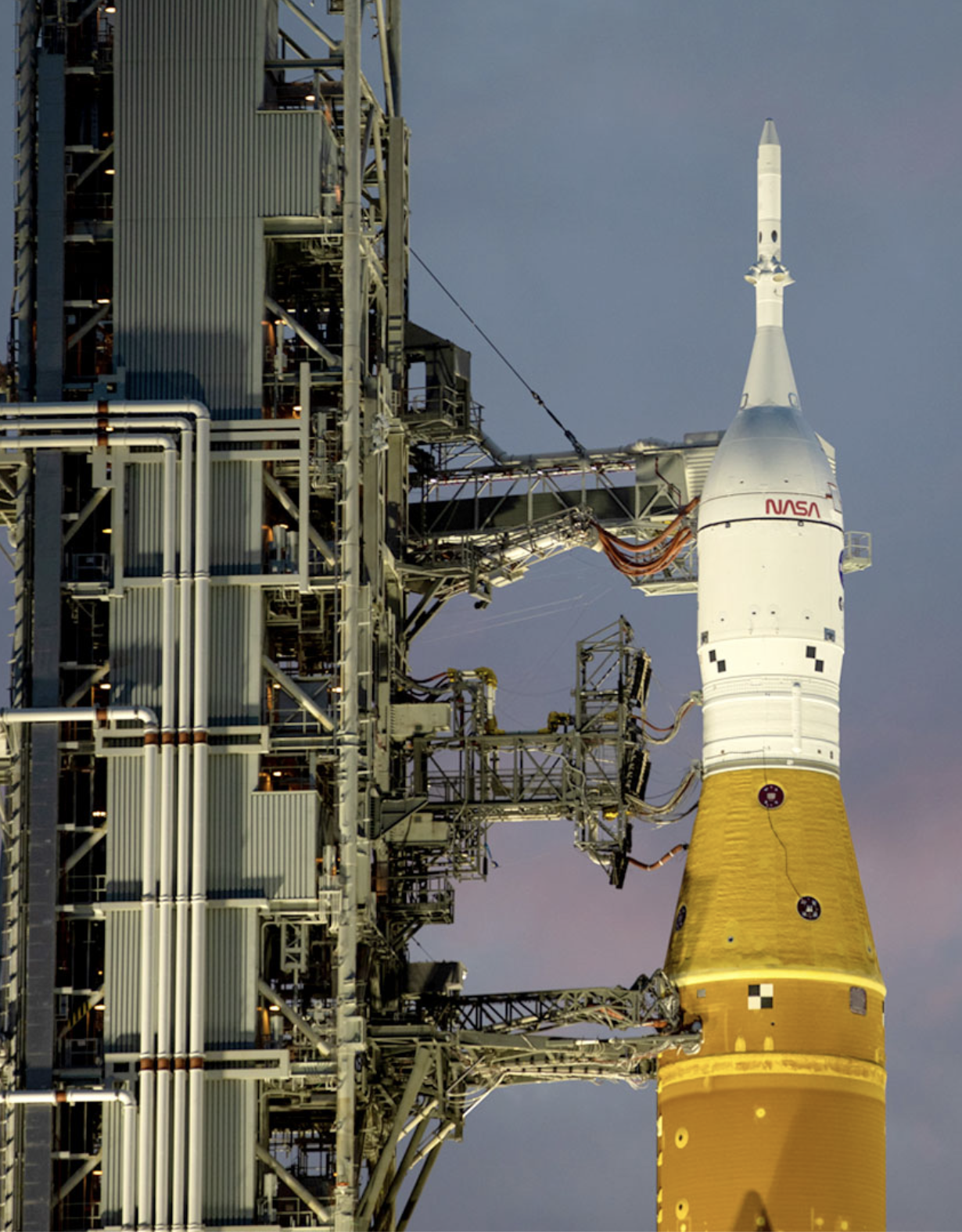
will be NASA’s first with a human crew. Happening aboard the Orion spacecraft atop the Space Launch System (SLS) rocket, this will pave the way for future Artemis missions to land the first woman and person of color on the moon.
Space travel is complex and awe-inspiring. It’s also something that our team at Northrop Grumman knows very well. And the most critical element of executing space travel, especially with astronauts on board, comes down to one thing: safety.
In the event of an early-stage emergency, the Launch Abort System (LAS) is critical. A three-motor system, the LAS is comprised of the abort motor, attitude control motor (ACM) and jettison motor that act together to lift the Orion spacecraft from the SLS rocket quickly and reorient it for a safe landing. It is fundamentally different from how the space shuttle was safeguarded; the entire shuttle had to be guided back to Earth in the event of engine loss or other abort scenarios with no capability to escape from a catastrophic failure. The ability to escape from the launch vehicle in the event of a potentially dangerous emergency situation, though, requires a different approach.
“After the vehicle is launched and you’re flying through the first portion of the mission, you’re not only overcoming gravity with that massive amount of fuel — you’re also facing aerodynamic forces, with the atmosphere pushing back on the vehicle, wanting to slow it down and break it,” Adam Lyons said, chief engineer for the LAS abort motor at Northrop Grumman. “We need a way to get away from the launch vehicle if something were to go wrong.”
In that case, the LAS abort motor will pull the astronauts’ capsule away from the SLS rocket, explained Adam. It will deliver a six-second burn of solid rocket fuel, pulling the capsule away from the unsafe environment. The LAS is then jettisoned, freeing the capsule for a parachute-supported return to Earth.
_______________________________________________
Total system breakdown’: California firefighters
with PTSD face a workers’ comp nightmare
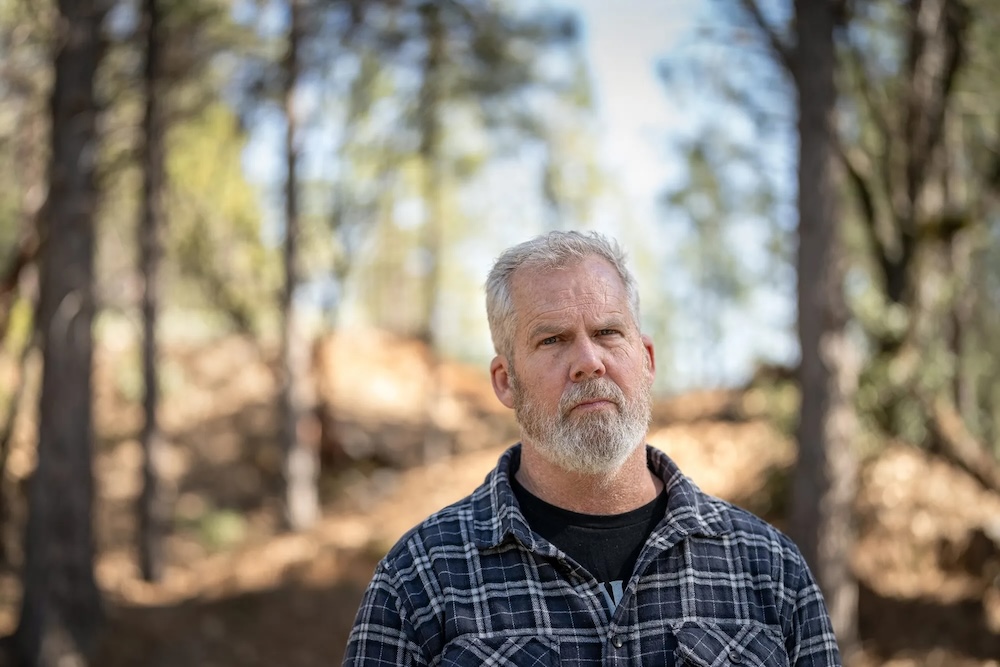
By Julie Cart | CalMatters
Todd Nelson could feel it coming on. And he began to run. He was going dark again, retreating to a place where he would curl into a fetal position with his thumb in his mouth, watching from behind closed eyes as his personal reel of horror unspooled. Sights and sounds from three decades of firefighting cued up — shrieks from behind an impenetrable wall of flame, limbs severed in car accidents and the eyes of the terrified and the dead he was meant to save.
Nelson was running on the Foresthill Bridge, the highest in California, fleeing cops and firefighters after his wife reported that he was suicidal. He hurdled a concrete barrier and straddled the railing of the bridge in the Sierra Nevada foothills, staring down at a large rock 730 feet below. As the rescuers closed in, Nelson leaned precariously over the chasm. His strategy — making the fatal plunge appear accidental, allowing his family to collect his life insurance.
It was not Nelson’s first suicide attempt — the former Cal Fire captain had tried to take his life many times before. But after that 2021 ordeal, which led to an involuntary 72-hour psychiatric hold, something in him shifted. He was ready to admit that he had a problem and seek medical help.
The incident began the firefighter’s arduous, years-long journey toward wellness, threaded through a bureaucratic labyrinth strewn with more obstacles than he’d ever encountered on a California wildfire: finding qualified medical help, battling an insurance company to pay for it and navigating the tangled morass of California’s workers’ comp. All without going broke or returning to his dark place.
_______________________________________________
Patrick Espinoza appointed to California Veterinary Medical Board
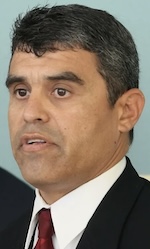
Patrick Espinoza, of San Diego, has been appointed to the California Veterinary Medical Board by Gov. Gavin Newsom.
Espinoza has served as chief deputy district attorney at the San Diego County District Attorney’s Office since 2021 and has served in positions there since 1995, including division chief, team leader and deputy district attorney.
Espinoza is a member of the San Diego County Bar Association, La Raza Lawyers Association and the California District Attorneys Association.
He earned a Bachelor of Arts degree in Political Science from Stanford University and a Juris Doctor degree from the University of California, Los Angeles School of Law.
This position does not require Senate confirmation and the compensation is $100 per diem. Espinoza is a Democrat.
_______________________________________________
Martin Armstrong appointed to California Landscape Architects Technical Committee
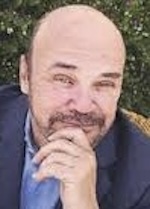
Martin Armstrong, of San Diego, has been appointed to the California Landscape Architects Technical Committee by Gov. Gavin Newsom. Armstrong has been Owner and Studio Director of landARCH six-19 since 2023. He was senior associate at GroundLevel Landscape Architecture from 2022 to 2023. Armstrong was senior project manager, regional landscape architecture and urban design team leader of Mark Thomas Co. from 2020 to 2022 and practice builder and landscape architect at Kimley-Horn Associates from 2018 to 2020. He was principal landscape architect, LEED Specialist, owner and founder at dig:designitGREEN LLC from 2009 to 2018. Armstrong is a member of the American Society of Landscape Architects. He earned a Bachelor of Arts degree in Landscape Architecture from California Polytechnic State University, San Luis Obispo. This position does not require Senate confirmation and the compensation is $100 per diem. Armstrong is a Democrat.
_______________________________________________
Scott L. Metzger appointed to USD School of Law Board of Visitors
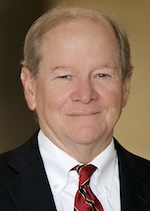
Scott L. Metzger, shareholder at Duckor Metzger & Wynne, a San Diego-based business and litigation law firm, has been appointed to the University of San Diego School of Law Board of Visitors.
As a Visitor, Metzger joins a body of accomplished leaders from across the country who play a pivotal role in advising the law school dean on challenges and opportunities while representing the school in the community.
Metzger will serve an initial three-year term as a Visitor.
He will attend meetings and engage in discussions to advance the School of Law as a “leading center of legal education and scholarship.”
Visitors provide advisement in various areas, including financial resources, faculty development, student admissions, career placement, academic and clinical program initiatives, alumni involvement and outreach to the legal community.
Metzger serves as an adjunct professor at the School of Law.
_______________________________________________
Amy Bonomi appointed head of SDSU’s College of Health and Human Services
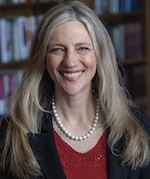
Amy Bonomi, a former associate dean at Northern Arizona University (NAU) and an internationally known researcher and scholar on domestic and sexual violence, started her position as dean of the College of Health and Human Services (HHS) at San Diego State University on July 1. Bonomi’s appointment fills the vacancy created by the retirement of Steven Hooker after six years as dean. Bonomi was associate dean of strategic initiatives at NAU’s College of Health and Human Services and previously served as the human development department chair in Michigan State University’s (MSU) College of Social Science.
In 2021, Bonomi founded Social Justice Associates, a small Broomfield, Colorado-based organization that works with individuals and organizations to promote healthy, equitable and inclusive working and learning environments.
_______________________________________________
Sharleen Wollach promoted to executive VP and chief
impact officer for Jewish Community Foundation
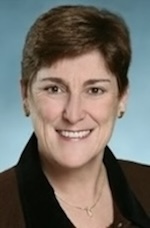
has been promoted to executive vice president and chief impact officer for Jewish Community Foundation San Diego. In addition to her regular responsibilities, with this appointment, Wollach assumes a pivotal leadership position, shaping strategic initiatives alongside Jeremy Pearl, recently appointed JCF President and CEO.
Since joining the foundation in 2009, Wollach has taken on an increasing role in driving new strategies, governance practices, and organizational development. Her current oversight extends across the foundation’s impactful areas, encompassing programmatic efforts that educate and inspire donors and grantees alike.
She has been nationally recognized for her work with Professional Advisors, Charitable Estate Planning and teaching grantees about building infrastructure through endowments, and has designed and implemented the Trusted Charitable Advisor (TCA) Program for professional advisors.




